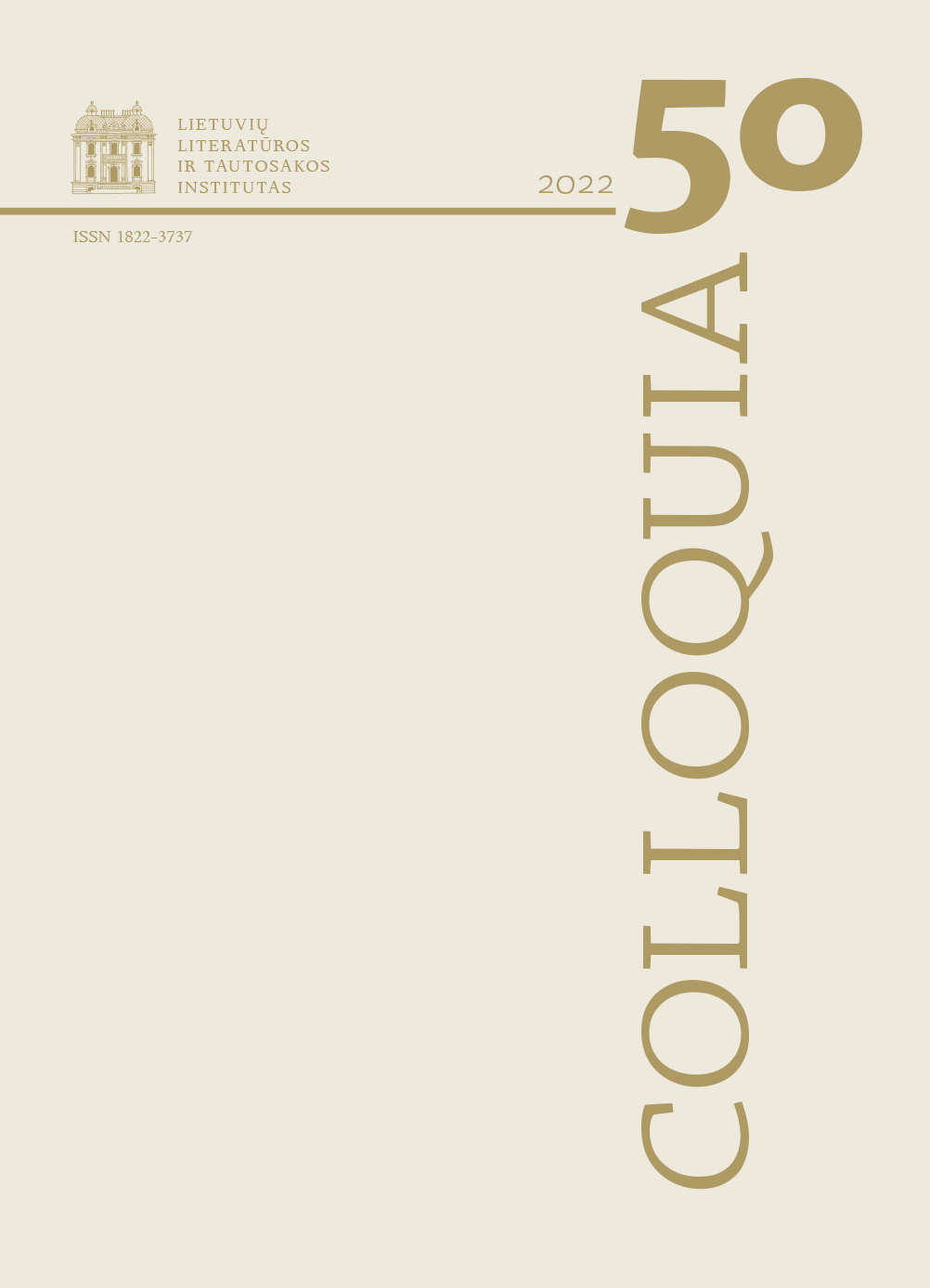Nemalonus mirties prieskonis: pramoninės gyvulininkystės iššūkis literatūrai
Santrauka
Pramoninė gyvulininkystė, kurios komunikacinė strategija skirta nuslėpti nešvariai mirčiai ir blogam tiekiamos mėsos skoniui, tapo svarbiu motyvu šiuolaikinėje literatūroje. Kaip sukurti pasakojimą apie tylų gyvulių gyvenimą, ištirpusį didelėje bandoje? Gyvenimas, negailestingai įstatytas į pradžios (apsėklinimas) ir pabaigos (paskerdimas) rėmus, stokoja nukrypimų ir nuotykių – stokoja galimybės tapti romano medžiaga. Straipsnio tikslas – išnagrinėti besiformuojančio žanro, vadinamo „agroalimentariniu romanu“, pasakojančio apie pasipelnymui skirtus gyvūnus ir atkuriančio jų išskirtinę, pasakojimo vertą egzistenciją, poetines priemones ir etinius siekius. Agroalimentariniai romanai paskutiniu dešimtmečiu vis dažniau ėmė rodytis Europoje ir Šiaurės bei Pietų Amerikoje. Jie labai aiškiai kelia skonio klausimą: lotynų kalboje („gustus“) ir senojoje prancūzų kalboje (XII a. – „gost“, XIII a. – „goust“) skonis suvokiamas tiesiogine ir perkeltine reikšme ir siejasi su skonio pojūčiu ir vertinimu. Skonio reikšmė susijusi su estetika, ne tik su pojūčiu, bet ir su menu, ne tik su kūnu, bet ir su visuomenine problematika – jo reikšmė nurodo ir praktinę veiklą, ir normas. Kaip su šia skonio problematika siejasi pramoninės gyvulininkystės ir skerdyklų tematika? Rašytojams ir skaitytojams tradicinio romano estetika ima atrodyti problemiška: vieni susiduria su žodžiais nenusakomu dalyku, kiti – su negalėjimu apie tai kalbėti. Abiem atvejais susiduriama su neįmanomu simboliniu pasisavinimo veiksmu. O į literatūrą dar aiškiau nei Jeano Paulio Sartre’o kūryboje arba įvairiuose pasakojimuose apie karą įvedamas kūniškai išreikštas ir mažiau į žmogų sutelktas pasibjaurėjimas ir šleikštulys.
